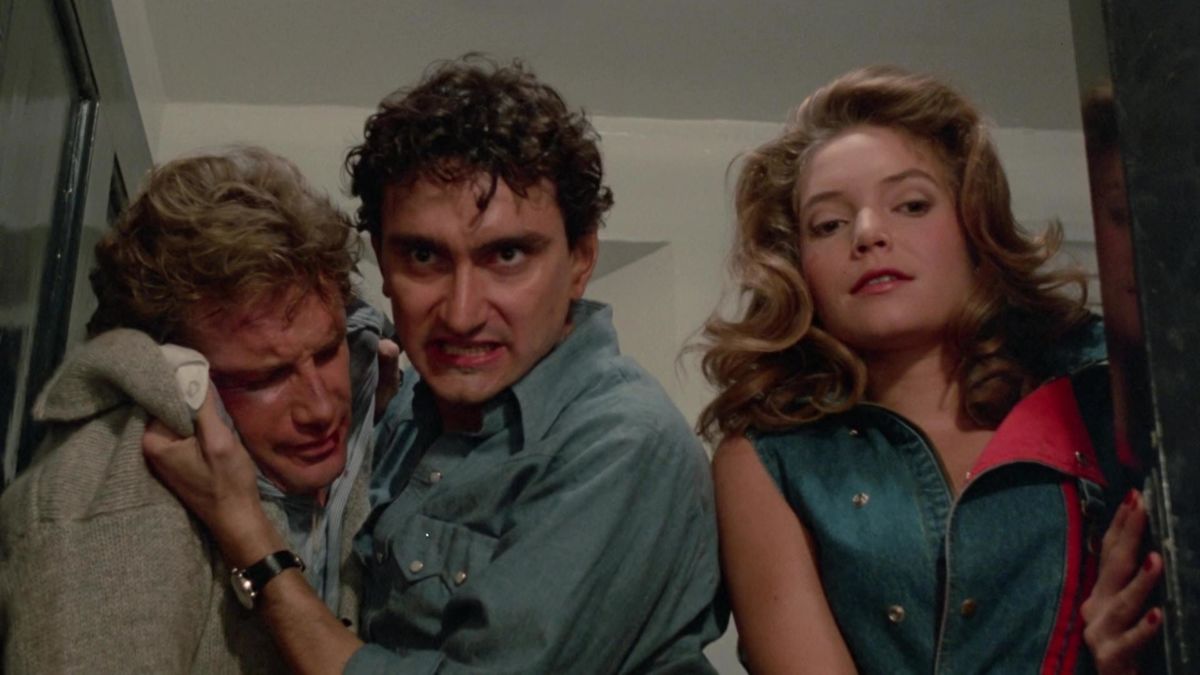
Scream For Help is not a widely known or discussed film, but those who know it tend to run hot or cold on it. For some, it hits as a strange amalgam of influences and ideas, a kind of cosmic accident. For others, it is another example of the flawed, “so bad it is good,” aesthetic and whatever positive attention it has gotten is sorely undeserved. Despite its reputation as a beautiful disaster of a film, one of those films that fails so utterly at its goals that you cannot help but admire what it is, I think that given a chance, Scream For Help could inspire no small amount of self reflection.
Written by Tom Holland, and directed by Michael Winner, the film has caused less serious reflection from viewers and creators than it has elicited a certain amount of finger pointing. Who, EXACTLY, is to blame for this tonal mess of a film that seems to marry the youthful innocence of an ’80s Nancy Drew ripoff with the dark undertones of an exploitation home invasion film? None have stopped to ask, from what I can tell, if this seeming mismatch might cause us to ask why we watch these films, and what they reveal about how we see their settings, both literally and culturally. If we were to assume that the strange cacophony of tonal, narrative, and acting decisions being made were intentional, would our understanding of what the film succeeds at change?

It is true, as some have observed, that if you allow it to, Scream For Help could cause many viewers to have some serious tonal whiplash. Our heroine, Christie Cromwell, is a strange mix of innocent and prudish with worldly and shrewd, skeptical of the world around her and incredibly independent, while also dressed like a republican mom and riding her bike everywhere. The film takes a dark view of sexuality and relationships, yet involves some sweet teen romance as well. If we want to simply assume this mixing of styles and attitudes is a happy mistake, then the film is still fun for that. The performances are ridiculous, perhaps even campy, but still fun and even if the entire thing is a silly mismatch, it still feels like an interesting view on suburban life. Still, I choose to view the film, whether intentional or not, as a productive union of innocence and cynicism, much like the ’80s itself. A time where a lie of innocence and former purity was cynically deployed. Culture was pretending to be depoliticized for very political reasons and money corrupted relationships across the board. The suburbs where the sites of abandonment, intrigue, murder, and sexual abuse as much as the cities, even as they were the emblem of purity in a fetishized way. The film may just be a series of bad decisions, a sexually explicit teen drama that is also somehow lacking in guile. Or, it might be an entirely intentional juxtaposition of differing ideals of what American life is that allows us to ask what we came to this movie for in the first place.

Whatever was going on behind the scenes of this film, is rare for me that a movie is so ridiculous and entertaining while still making me wonder about so many different ideas. I am sad we don’t have too many more Rachael Kelly performances to discuss, even if hers is the thankless role in the film, but this movie will give me joy for some time.





